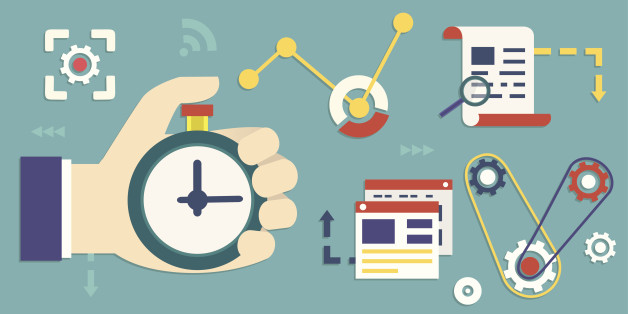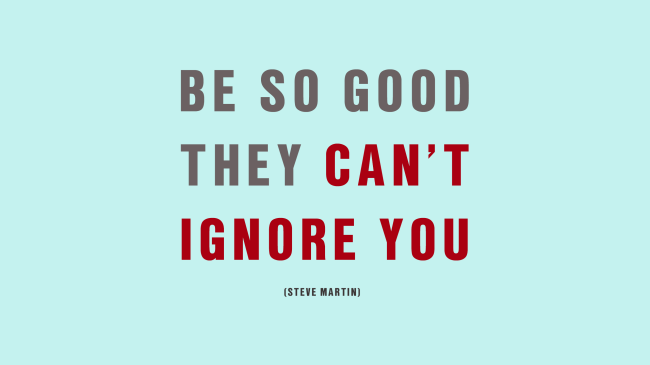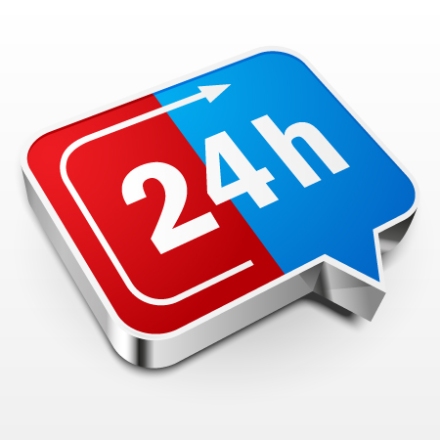The Productivity Habits of 7 Billionaires, 13 Olympic Athletes, 29 Straight-A Students and 239 Entrepreneurs
Managing time is the key. You will be able to accomplish a lot more in life that way. The author interviewed many successful people. Time management is related to happiness. Successful people think about values, priorities and consistent habits.
The Power of 1440. Understand what ‘1440’ is. Paste 1440 in front of you. It will show you the meaning of time and that you should be treasuring and valuing it. There are 1440 minutes in a day. Conduct a ‘dollar per minute’ analysis. The moment you lose time, you will realize that you can’t get it back. Time is the lowest common denominator. Everyone has the same amount each day. How often you are aware that you are losing time and that it is slipping by. Every minute is precious. Having healthy habits is a big bonus. Understand that time is a scarce resource
The power of proper priorities. Work towards your own goals, not other peoples’. Focus on a single task. This is indeed very crucial. Know what your MIT (Most Important Task) is. Work on time alignment. Set SMART goals. Pick focus areas. Place your MIT in your calendar. The first part of the day should be used for something productive, like your MIT. Prepare a to-do list the night before. Focus on what you are doing. If you are an employee, you might focus on what you are going to be appraised on.
Research suggests that most people are most productive and have the highest cognitive functioning in the first two hours after they’re fully awake. – Kevin Kruse
Stop making to-do list – Do This Instead. To-do lists cause stress. People tend to pick those items that are urgent and easy to complete. Unfinished goals can cause intrusive thoughts (Zeigarnik effect). Schedule time for it, not just create a list. Put everything on your schedule if you can. Time-block exercise on your calendar. Important items should be tackled at the start of your day. Don’t cancel them. But you may re-schedule them if necessary. Everything in your calendar should get done. If something clashes, you can re-schedule the urgent appointment instead. Block time for your own objectives.
The Procrastination Cure. Procrastination is the act of putting aside what is tough and doing what is easy first. 20% of men and women are all chronic procrastinators. People procrastinate not because they are lazy, but people they lack motivation. People have a ‘present bias’. The present enjoyments are always within reach. Your future self is going to sabotage you if you don’t do something today. ‘What pain will you feel if you don’t do something?’ Think of the pain when you procrastinate. Keep an accountability partner. This works as people don’t like to break promises to others. Use commitment levels to motivate you. Donate money to others if you do not reach your goal. Use self-talk and affirmation. For instance, say things like ‘I am a jogger’, ‘I am an entrepreneur’. Settle for good, and not perfect. If you feel imperfection is okay, you will at least start on something.
How to Leave the Office at 5:00 – Without Guilt. How do you stay calm and stress free? How did President Bush find so much time to read books? Learn to recharge and build adventure into your schedule. Prioritize your ideas and tasks. If something is important, you will naturally find the time to do it. There will always be more things to do. Understand that you can never do it all.
My day ends when I’m tired and ready to go home, not when I’m done. I am never done. Like a housewife’s, a manager’s work is never done. There is always more to be done, more that should be done, always more than can be done. – Andy Grove
Richard Branson’s Secret Productivity Tool. He always carries a notebook around. When you have an idea, it is important that you jot it down immediately. When some event has passed, always write it down. Keep a journal. Journal writing is crucial and important. Do not use plain pieces of paper as these are easy to misplace. Try to use an actual notebook and not type on a laptop. Hand-writing can enable you to recall better. Just down random stuff in your day. Write down inspiring quotes which you hear along the way. Use punctuation to give clarity.
The act of taking notes by hand involves active listening, cognitive processing, and finally recalling it to record it. People who take notes with a laptop tend to just robotically record spoken words, without doing the mental work to process it. – Kevin Kruse
Master Your Email Inbox with 321Zero. Many people spend too much time on emails and this is unproductive. Step 1 is to unsubscribe from newsletters. Turn off email notifications. Only check it 3 times a day and aim to clear all mail in 21 minutes. Remember to archive your mail. Apply the 4Ds – Do it, delegate it, defer it or delete it. Choose your own work routine. Do not let others dictate it for you. Keep the emails short. If you send less email, you will also receive less email. For those email that were sent more than 48 hours ago, simply chuck them aside. Spend less time on email and use the time on strategic activities.
Meeting Hacks from Google, Apple and Virgin. A lot of productivity is lost through meetings. Usually, meetings start late. Often, the wrong people are invited. The extroverts tend to dominate the meetings. People usually only discuss the simple stuff that they know. Set aside days when no meetings can be held. This will increase productivity in the company. Always remember to state the meeting agenda and the purpose of the meeting. Use a countdown clock to time the meeting. Have stand-up meetings. It is also possible to conduct walking meetings. Some people also hold 10 minute meetings. The use of smartphones is inappropriate. It is important for management to set the daily rhythm. Daily huddles should be in place at the same time every week. Routine can indeed set you free.
Parkinson’s law of triviality. Also, known as the bike-shed effect, this law states that organizations spend the most time on trivial issues and the least time on the most important issues. – Kevin Kruse
It’s very rare that a meeting on a single topic should need to last more than 5 to 10 minutes. – Richard Branson
One Little Word that Multiplies Success. There are endless requests for our time. However, it is important to be vigilant over the use of your time. There are always trade-offs in life. Although your calendar 3 weeks down the road might seem free, however, when the date arrives, you might be swamped with activities. Every yes is a no to something else. Understand about opportunity costs. We grew up learning not to say no to things. You can say ‘no’ in a polite way but explaining at you are busy etc. For instance, you can say ‘Unfortunately, my schedule is packed’. You can also suggest a time for them when you are free. You can refer the person to a colleague of yours. Saying no to friends is okay.
The Powerful Pareto Principle. Understand the 80/20 rule. This helps you identify the tasks that you should be focusing on. It can help you in business decision making. It can even be applied to reading and studying. Do you really need physical possessions to be happy? Just do the most important things exceptionally well. Figure out which 20% of your goals are most important to you. Focus on your most important clients.
The 3 Harvard Questions that Save 8 Hours a Week. Instead of asking ‘How can I do this?’ Ask ‘How can this be done?’ You can outsource some of your work. If you can delegate, you will feel less stressed. Discretionary activities which are non-value adding can be outsourced. Keep thinking of the following key words: 1) Drop; 2) Delegate; 3) Redesign. Outsourcing can increase your free time. For instance, you can hire a domestic worker. You are not good at something and do not like to do stuff, it is possible to outsource them. Some businesses are boggled down with admin work. As a result, they are slowed down tremendously. Some things need not be outsourced if you enjoy doing it and it aids in your recharging process. Learn to audit your time once in a while.
Focus on what you are great at and hire everyone else to do the rest. – Lewis Howes
Why Twitter Co-Founder Jack Dorsey Themes His Days. Focus each day on different aspects of the business. For example, Tuesday is product day. Create days for setting themes. There should be Focus Days, Buffer Days and Free Days (no work at all). You can set time for vacation days. Sandwich vacations with buffer days. Rather than just blocking internal meetings, also block free thinking times.
Don’t Touch (Until You’re Ready). When we process stuff, we often need to look at it multiple times. This is very unproductive. To be efficient, you should only process it once. This is known as ‘touch it once’. If the email is simple and can be replied to immediately, do so. If you can’t ‘touch it once’, calendar it. Or you can even create calendar invites for things. If something can be done in less than 5 minutes, do it immediately.
When we process our email, we might respond to each ‘ding’ by scanning who it’s from and what the subject line is. We then decide whether or not to open it. If we open it and read it, we then decide to leave it in our inbox so we can respond to it later…when we’ll read it all over again. – Kevin Kruse
Change Your Morning, Change Your Life. Imagine if you can find an hour of me-time every day. It is crucial to have an empowering morning routine to start off your day. Start off your day with sweat and exercise. You can incorporate cardio in the mornings too. For instance, you can do yoga as well. Wake up before 6. Drink a lot of water. Each a healthy breakfast and then exercise. Your willpower is at the highest in the mornings. Therefore, you should do your best work in the mornings. Take an inner bath. Exercise can help release endorphins which will make you feel good about yourself. Many famous people have very good morning routines that keep them perked up throughout the day. Believe in the power of morning rituals. SAVERS (Silence, Affirmations, Visualization, Exercise, Reading, Scribing). Invest the first 60 minutes of each day to hone your mind, body and spirit.
Energy is Everything. Everyone has the same 24 hours everyday. Get more stuff done. There will definitely be moments when you suffer from lack of energy. Sacrificing sleep is not a good long term solution. Writing came easily in the morning. Know when do you feel ‘in the moment’ and when you are the most productive. Match your capacities with what needs to be done. If you can increase your energy, productivity will shoot up the roof. Learn to schedule time for yourself. Get your blood pumping. Our body usually feels fatigued after 90 minutes of exertion, for instance. Therefore there is a need for a break every 90 minutes. Learn the Pomodoro technique. It is possible to get any task completed easily. Get enough sleep and exercise and minimize caffeine and alcohol. Power walking counts as a form of exercise. Productivity is about energy and focus, not time.
The E-3C System: Putting it all Together. Maintain a personal operating system. Learn from good habits of successful people. E-3C stands for Energy, Capture, Calendar and Concentrate. You can’t increase the amount of time you have. But you can increase productivity. Capture everything done which must be done in a notebook. This will certainly help you to increase your productivity. The second C is your calendar. Block time for your most important task (MIT). Do only one thing at once and do not multi-task. Do not let technology control your life.
Twenty More Time and Productivity hacks. Use your camera to take phones in order for you to remember things. Shut off your notifications. Drink a healthy protein shake. Do not waste too much time watching TV. Minimize travelling time if possible. Use dual monitors in order to improve efficiency. Have a stop doing list. Remember the end time so that there will be no overruns. Learn to hang out with productive people. Tell people to leave you alone. Pay bills electronically to save time.
Time Secrets of 7 Billionaires. Reserve the mornings for doing real work. Do only one thing at once. Avoid multi-tasking. You can work out during lunch to keep yourself fresh later during the day. A fresh mind holds the key for success for many people.
Time Secrets of 13 Olympic Athletes. Schedule everything in your calendar. The importance of rest is often overlooked. Plot out what a day should be like. It is crucial to write it down. Everyone needs a break once in a while too. Focus is essential. A strong level of discipline is needed as well. Have an agenda and a focus day every week. Rest and recharge is crucial for an athlete to be at optimal condition. It is also important to understand that you can’t do it all.
Time Secrets of 29 Straight-A students. Do only 1 thing at any one time. Make a schedule. Consider using an app called ‘SelfControl’. Remember to schedule some me-time as well. There is no need to study in big groups. Learn to give yourself play rewards once in a while. Learn stuff on Wikipedia. Give yourself goals as well. Set realistic small goals. Learn to say no to friends. Stay organized and manage your time well. Maximize productivity by making full use of idle time. Surround yourself with smart people.




